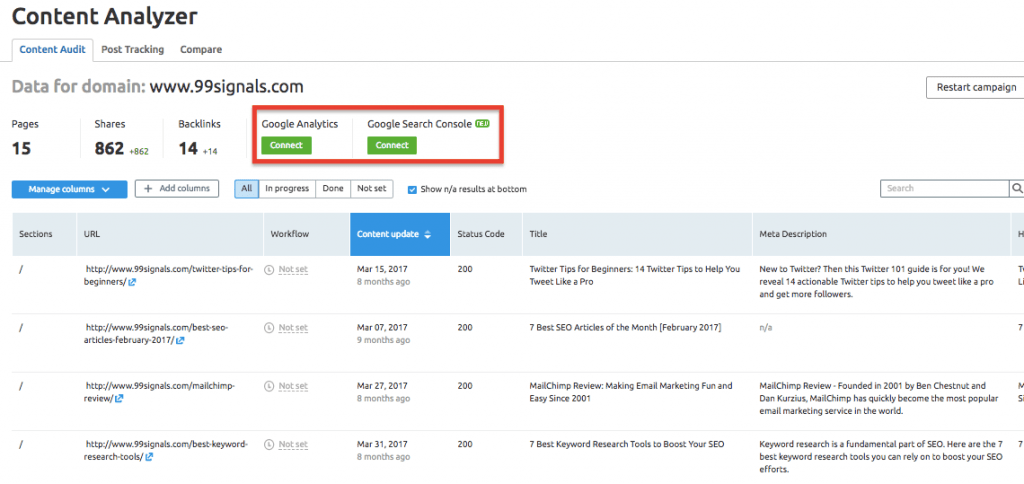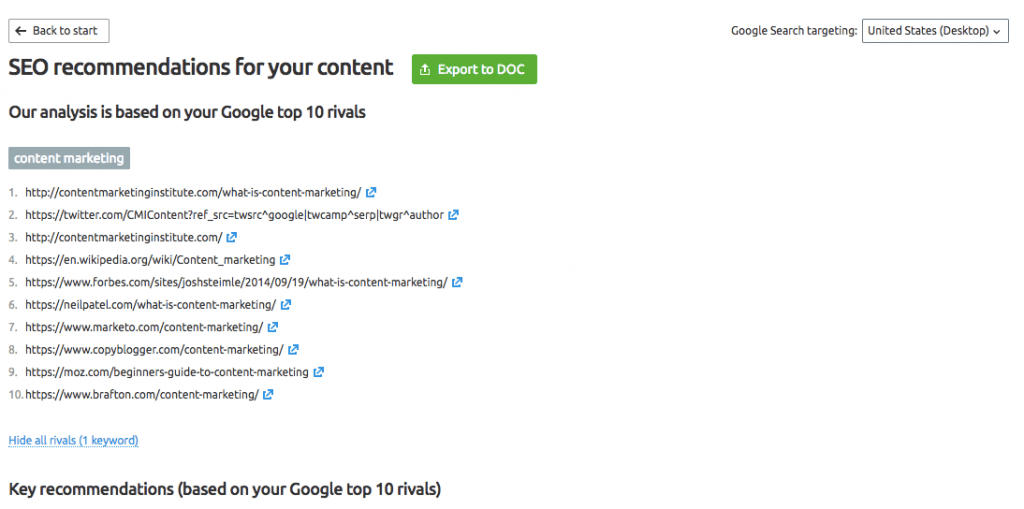Think about it! Strong content is fundamental to all forms of marketing – social media marketing, SEO, PPC, PR, and email marketing. Traditional marketing is losing its steam, becoming less effective by the day. Customers no longer prefer to be bombarded by product pitches all the time. Instead, they would like brands to focus on delivering relevant, valuable, and consistent content that helps solve their problems. In other words, they’d like brands to focus less on pitching their products and more on providing solutions to the issues they are facing. This is why content marketing is so important in today’s business environment. According to Content Marketing Institute (CMI), both large and small businesses use content marketing because it’s good for the bottom line and the customer. Specifically, businesses use content marketing for these 3 key reasons:
Increased sales Cost savings Better and more loyal customers
In order to achieve your content marketing goals, you need a reliable platform that lets you perform a detailed analysis and assessment of your existing content assets, and provides recommendations to improve the quality of content on your site to maximize its impact. SEMrush is one such platform which can help you amplify your content marketing strategy, specifically 3 tools within SEMrush:
Content Audit Post Tracking SEO Content Template
In this article, we’ll evaluate the key features of these lesser-known SEMrush tools in detail and examine ways to improve your content marketing strategy.
1. Content Audit Tool
The SEMrush Content Audit tool lets you quickly audit the content on all the webpages of your website, based on the sitemap data. With this tool, you can determine which pages are effective and which ones are not. This tool provides you with various data such as social signals from Twitter, Facebook, Google+, and LinkedIn, backlinks, and user signals, such as number of sessions, average session duration, and bounce rate. It also automatically collects metadata, content authors, and content length for each URL. These metrics help you identify pages on your website that are not getting the recognition they deserve and could be improved with an update. To access this tool, go to Content Analyzer –> Content Audit, enter your domain and hit ‘Start Audit’. Wait for a few minutes while SEMrush gathers the data for you.
Pro Tip: To get a more accurate data, I highly recommend you connect your Google Analytics and Google Search Console accounts with the Content Audit tool. You can do this once SEMrush generates the content audit report.
Once the report is generated, it’s time to identify loopholes and weak spots on your website. The quickest way to do this is by sorting the table by quality metrics such as:
Social shares or backlinks – to find content that is not as popular across the web as some of your other pages. Content update – to find pages on your site that are the oldest and need an update. Word count – to find content that could be expanded into longer posts.
You can even manage your workflow within the Content Audit tool and track progress of each of your pages. Your options are ‘Not Done’, ‘In Progress’, and ‘Done’. Use these options to assign priorities to each of the pages that you’d like to improve. You could also take the URLs that you want to improve and enter them into the On Page SEO Checker (formerly SEO Ideas). With this tool, you’ll receive actionable ideas to improve your strategy, on-page SEO, technical SEO, and more.
2. Post Tracking Tool
With the SEMrush Post Tracking tool, you can analyze and measure the performance of any article by tracking its backlinks, keyword rankings, and social shares. You can use the Post Tracking tool to track the performance of your guest posts on different sites or review any article from your competitors’ sites. To access this tool, go to Content Analyzer –> Post Tracking, and enter the URL of the article. By default, the tool comes with a ‘demo mode’ with 3 example URLs. So before you proceed, you can check the demo to see how the tool operates.
Within a few seconds, SEMrush will analyze the URL you’ve entered and return with a report showing the article’s keywords, total backlinks, and social shares.
Under social shares, you’ll also be able to view the top contributors on Twitter i.e., a list of Twitter influencers who shared or retweeted the article. With this data, you can perform an influencer outreach while promoting your own content that rivals that of your competitor.
3. SEO Content Template
The SEO Content Template is a standalone tool that helps SEOs and marketers develop SEO-friendly content. The main goal of this tool is to help you create content that outranks your rivals on the SERPs for your target keywords. This tool can also help you uncover link building opportunities and discover how your top competitors are using target keywords within their content. To access this tool, click on SEO Content Template on the left hand navigation menu just below Gap Analysis Tool.
Here, you need to enter your target keywords, select the location, and then hit ‘Create SEO Template’. Within a few seconds, SEMrush will generate a report which will contain the following data:
Key recommendations (based on your Google top 10 rivals) – Semantically related words, backlinks, readability, video content, text length, etc. See how your competitors use your target keywords Basic recommendations – Page Title, Meta description, H1, text, etc.
You can also export your template to a Word document to access it offline. This Word doc will list your recommendations for Page title, meta description, text, backlinks, and your rivals’ URLs.
Conclusion
To be effective at content marketing, you need a tool like SEMrush to develop a robust content strategy. Click here to sign up for a 30-day free trial of SEMrush Pro and create a successful content marketing plan for your business. New to SEMrush? Check out the resources below, where you’ll learn effective ways and strategies to get maximum ROI from your SEMrush subscription:
SEMrush Review 5 Best SEMrush Features for Bloggers SEMrush vs Moz: A Detailed Comparison of Key Features 6 Powerful Ways You Can Use SEMrush to Crush Your Competition SEO Tools Showdown: SEMrush vs Ahrefs vs Moz Pro vs SpyFu



![]()
![]()


